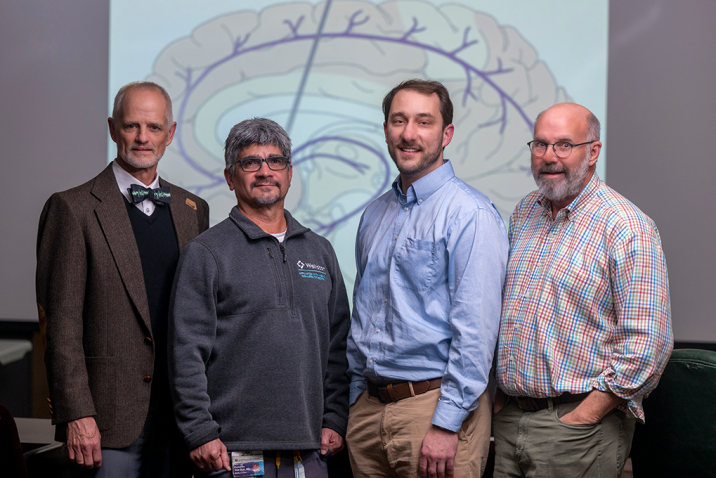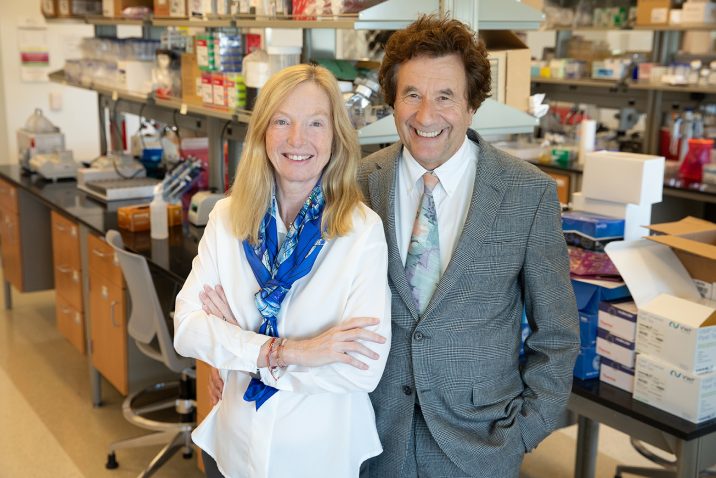Biostatistics
As a biostatistician with a doctoral degree, you’ll be trained to collaborate on designing
research studies in the health sciences and advise researchers on proper data collection,
storage, and retrieval methods.
Biostatisticians use state-of-the-art statistical methods and software to assist researchers
in exploring health-related problems. With a doctorate in Biostatistics from the School of Public Health at Augusta University, you’ll be prepared to hold
faculty or staff positions in academic institutions or to work as a biostatistician
in government agencies, insurance and pharmaceutical companies, or the biotechnology
industry.
Biostatistics is for you if you consider yourself
Life-Changing
Life-Saving
Education
Want to learn more about the Biostatistics program at Augusta University?
Request InfoWhat You'll Study
Coursework
Students in Augusta University’s Doctor of Philosophy with a major in Biostatistics program will complete 40 hours of core coursework and 21 hours of electives along with a dissertation of original methodological and statistical research applicable to the health sciences.
The program is designed to be completed in four to five years, with a maximum of seven years.
Curriculum | Admissions Criteria | Tuition and Fees | Application Deadlines



EXPLORE. EXCEL. EXPAND.
Graduate School Advantage
Augusta University's graduate programs are among the best in the nation – and the world – and our graduate students are our most valuable assets. To ensure that our students earn more than a degree, the Graduate School offers a range of opportunities so they can develop the leadership, communication and personal skills needed for a rewarding life and academic, research or professional career.
See what the Graduate School has to offer »
About the Graduate SchoolExperience-based Education
Outside the Classroom
At Augusta University's School of Public Health, graduate research assistantships are available to PhD students in Biostatistics. These positions offer competitive opportunities for students to collaborate with mentors on research projects within the health sciences field.
Through these assistantships, students gain hands-on experience in study design, data collection, statistical analysis, and result interpretation. Working closely with mentors, students develop practical skills that are essential for success in research and academia.
This real-world experience enhances their understanding of biostatistics principles and prepares them for impactful careers in public health research.
Preparation
The Biostatistics program produces graduates with a strong background in biomedical and health sciences methodologies and techniques who are prepared to excel as biostatisticians in a variety of environments.
Student Funding
Qualifying students can earn a tuition reduction as well as a $20,000 stipend for nine months that increases to $25,000 for the later years of the program
The School of Public Health
The School of Public Health is dedicated to training professionals who are passionate about overcoming societal barriers to achieve optimal health and wellness for all.
Accomplished Faculty
Biostatistics faculty are recognized educators who are committed to providing innovative opportunities for student learning and professional growth.
Your Future
Career Options
According to the U.S. Bureau of Labor Statistics, median pay for mathematicians and statisticians, which includes biostatisticians, is $96,280 per year.
The growth rate is projected to rise much faster than average over the next decade.
Graduates of the program have gone on to work at the Environmental Protection Agency, insurance companies, academic institutions and pharmaceutical and biotechnology companies.
Admissions Criteria at a Glance
GPA: Overall GPA of 3.0 on a 4.0 scale at the Baccalaureate level calculated on all undergraduate work.
Degree Requirement: Minimum of a Bachelor’s degree or equivalent from an accredited college or university.
Transcripts: Official transcripts are required from all universities and colleges ever attended. Unofficial transcripts from US colleges and universities can be used in the admissions review process in lieu of official transcripts for this program.
Standardized Test Requirements: Submission of official GRE exam score is required. The Augusta University institution code for submission of GRE is 5406.
Letters of Recommendation: Recommendations from three individuals must be submitted through the application portal.
Prerequisite Coursework: Undergraduate coursework must include three semesters of college-level calculus with a minimum grade of B in each course. Applicants must also have completed one semester of linear algebra with a minimum grade of B.
International Students: Please review the verification process for international transcripts and the english proficiency requirement.
Tuition & Fees Estimate
$4,801*
Estimated total
Full-time / In-State / Per Semester
$401
Tuition Per Hour
$675
Mandatory Fees
View Detailed Program Tuition
*Tuition & Fees listed here are for in-state students enrolling in the university for Fall 2024 semester.
Detailed Program Tuition InformationApplication Deadlines
Fall '26 International Application Deadline
- March 1, 2026
Fall '26 Application Deadline
- June 15, 2026
Applications must be submitted by March 1, 2026 (extended from February 1) to receive consideration for funding.
Early submission of all application materials is strongly advised.
All required application materials and documents must be received in order for an application to be considered complete and before an admission decision can be made. The program does not accept applications after the published application deadline, however the program will continue to accept application materials up to 2 weeks after the application deadline.

Why Augusta?
An established program with celebrated faculty means you’re prepared for the challenges of whatever work environment you choose.
As one of Georgia’s four research universities, Augusta University provides unparalleled access to groundbreaking researchers and the projects they’re involved with.
With an emphasis on statistical methods that support biomedical and health sciences research, you’ll be part of a unique program tailored for a career in rewarding health care fields.

Revolutionary genome mapping tech targets childhood brain cancers
Revolutionary genome mapping tech targets childhood brain cancers
MCG starts human trials on deep brain stimulation for Alzheimer’s patients
MCG starts human trials on deep brain stimulation for Alzheimer’s patients

